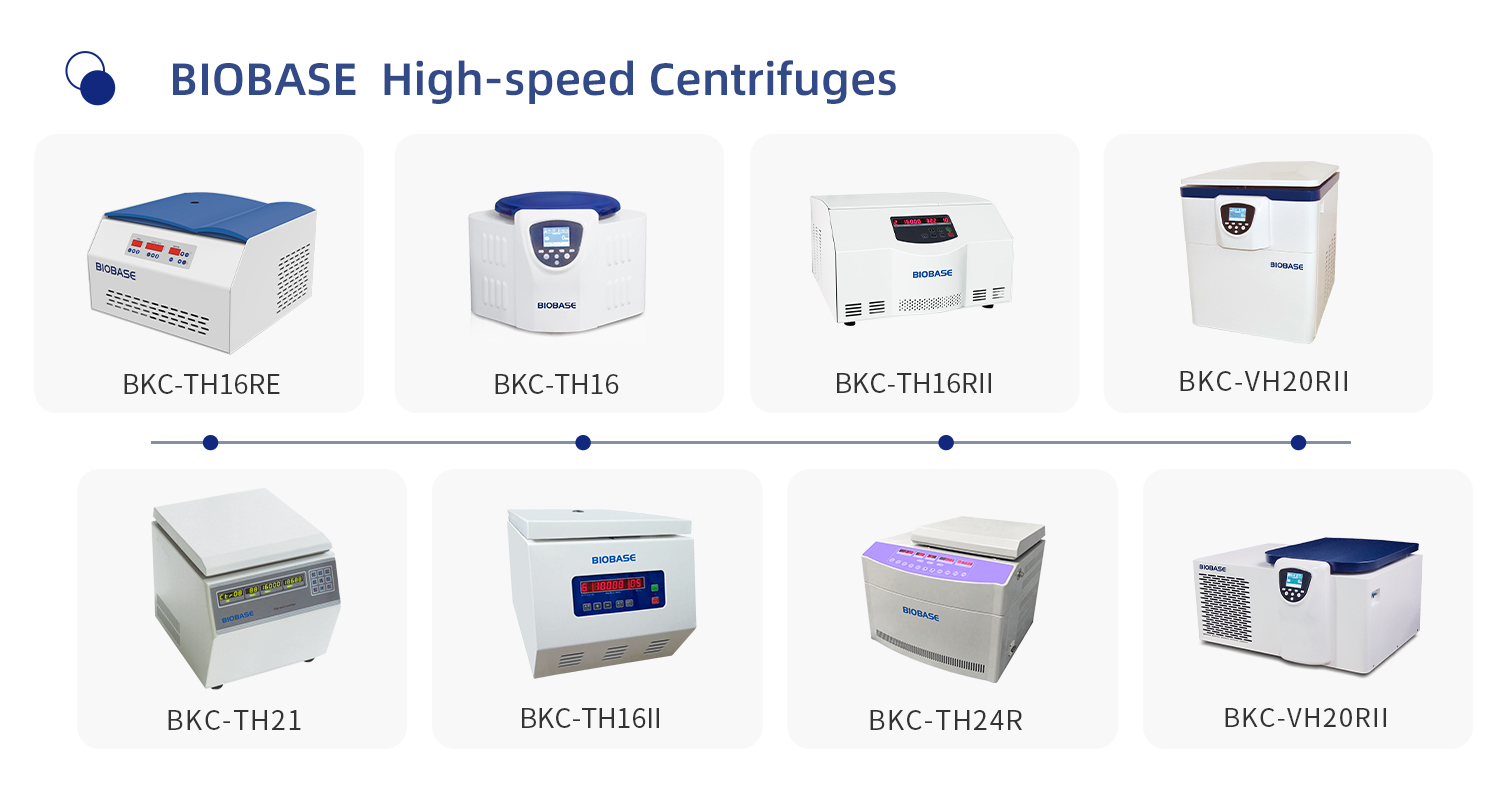Application scenarios of high-speed centrifuges
The high-speed centrifuge can reach more than 10000 rpm. It is a conventional laboratory centrifuge, which is widely used in experiments with small sample volume, many steps, large centrifugal force and not high requirements for temperature.

It is mainly used in scientific research, education and production departments such as biochemistry, genetic engineering, agriculture and forestry, food hygiene, hospital medicine, etc. It is suitable for rapid separation and synthesis of micro samples.

Application scenarios:
Medical service: hospitals, blood centers, animal husbandry and aquaculture, radioimmunization;
Research departments: colleges and universities, research institutes, R&D centers, laboratories (can be used for the separation of subcellular organelles, proteins, viruses and other samples);

Production departments: bio-engineering, bio-pharmaceuticals, genetic engineering (for DNA purification, isolation and post-processing cleaning work), biochemistry, plant extraction, blood preparations (filtration and concentration, blood component separation and microbial cell collection), food processing, laboratory of petrochemical industry, milk fat separation, etc.

High-speed centrifuges can not only separate solid particles from liquids in suspension, but also separate two immiscible liquids of different densities in emulsions (such as separating cream from milk). It is thanks to above-mentioned functions that the high centrifuge has become one of the indispensable equipment in many laboratories.
